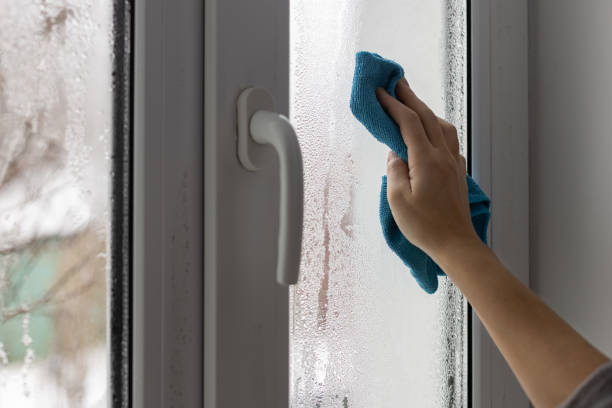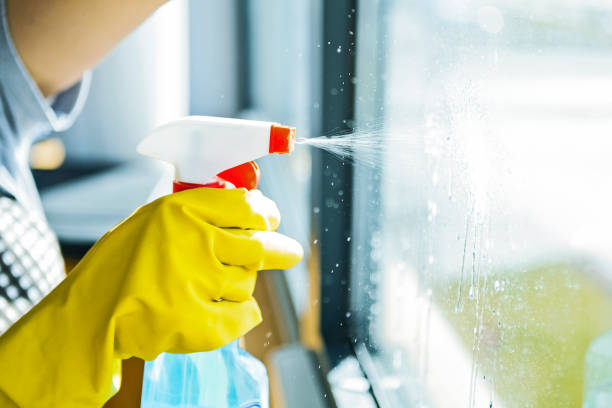When it comes to achieving sparkling clean windows, homemade solutions can be just as effective as store-bought cleaners. In fact, creating your own window cleaning solution can save you money and reduce your exposure to harmful chemicals. This article explores the best homemade window cleaning solution, its ingredients, effectiveness, and how to use it properly for the best results.
Ingredients for a Homemade Window Cleaning Solution
The beauty of a homemade window cleaning solution lies in its simplicity and the accessibility of its ingredients. Most solutions involve common household items that you likely already have. The key ingredients for the most effective homemade window cleaning solution include:
- Vinegar: A natural cleaner and disinfectant, vinegar cuts through grime and grease.
- Water: Essential for diluting the cleaning agents and preventing damage to window surfaces.
- Dish Soap: A few drops of dish soap add grease-cutting power to the solution.
These ingredients come together to form a powerful and effective cleaning solution that is both eco-friendly and budget-conscious.
Mixing the Solution
Creating your own window cleaning solution is straightforward. Here’s a simple recipe to follow:
– Combine equal parts of water and white vinegar in a spray bottle.
– Add a few drops of dish soap (about 2-3 drops for every cup of solution).
– Shake the bottle gently to mix the ingredients, ensuring the dish soap dissolves thoroughly without creating too many suds.
With this mixture, you now have a potent cleaning solution ready to tackle any window grime.
Effectiveness of Homemade Solutions
Homemade window cleaning solutions can be just as effective as commercial cleaners, often outperforming them. The presence of vinegar helps break down the buildup of grime and mineral deposits, while the dish soap cuts through any greasy residues. This combination ensures that the solution can handle even the toughest of dirt on your windows, leaving them streak-free and crystal clear.
Moreover, using a homemade solution reduces your exposure to the harsh chemicals often found in commercial cleaners, making it a safer option for households with pets and children.

How to Use the Solution
Using your homemade window cleaning solution is as simple as its preparation. Follow these steps for the best results:
1. Spray the solution: Generously spray the cleaning solution onto the window, covering all areas evenly.
2. Wipe with a microfiber cloth: Use a clean, dry microfiber cloth to wipe the window in a circular motion, ensuring you cover all sections.
3. Buff for a streak-free finish: Finally, take a dry part of the cloth or a separate dry cloth to buff the window, removing any remaining moisture and ensuring a streak-free shine.
By following this method, you can ensure that your windows are left spotless and gleaming.
Conclusion
In conclusion, the best homemade window cleaning solution consists of simple ingredients like vinegar, water, and dish soap. This mixture is not only cost-effective but also safe and highly effective at cleaning windows. By mixing, using, and understanding the effectiveness of this homemade solution, you can maintain sparkling clean windows without the need for expensive commercial products.
FAQs
1. Can I use apple cider vinegar instead of white vinegar?
While white vinegar is preferred due to its clear color and higher acidity, apple cider vinegar can also be used. However, it may leave a slight residue or color on the glass, requiring additional wiping.
2. How often should I clean my windows with this solution?
To maintain streak-free windows, it is recommended to clean them at least once a month. However, high-traffic areas or seasons with excessive pollen or grime may require more frequent cleaning.
3. Can I use this solution on tinted windows?
Yes, this homemade solution is gentle enough for tinted windows. Vinegar and mild dish soap will not damage the tint but always ensure to buff dry to avoid streaks.
4. What type of cloth is best for window cleaning?
A microfiber cloth is ideal for window cleaning as it is lint-free and highly absorbent. It will help you achieve a streak-free finish more effectively than paper towels or cotton cloths.
5. Can I add essential oils to the solution for fragrance?
Yes, adding a few drops of essential oils such as lemon or lavender can impart a pleasant fragrance. Make sure to use only a small amount to avoid leaving oil streaks on the glass.
